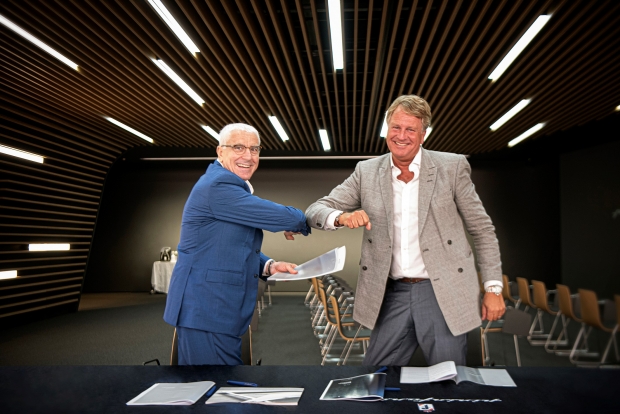Pininfarina works with top brands such as Ferrari, Alfa Romeo and Peugeot – including a renovation of the Eurostar fleet operating between London and Paris.
The Italian outfit started electric cars in 1978 with the Ecos automotive prototype and says it is fully committed to a significant number of electric propulsion solutions in various segments of the mobility ecosystem.
The priority for Britishvolt was to partner with a company with expertise in this field, that could design a facility that is both sensitive to its surroundings, as well as open and welcoming to the local residents.
Orral Nadjari, CEO and Founder at Britishvolt said: “Britishvolt’s aim to become the world’s first zero carbon battery manufacturer aligns perfectly with Pininfarina’s expertise in creating green, high tech and innovative environments. With carefully selected sustainable materials that take into account the entire building’s life cycle, Pininfarina’s appreciation of social impact is what drew us to this partnership. Their balance between pioneering design and understanding of local culture, is one Britishvolt is proud to take forward.
“We are aware of the significant impact our 2.7 million square feet gigaplant will have on the region’s landscape. Interacting with the local community will be a priority for us, and we will ensure that a regular dialogue with the residents and businesses of Bro Tathan takes place. We want this structure to stand as a beautiful testament to the local culture, our greener future, and the country’s world-class expertise in battery research and development – which will only continue to grow”.
Silvio Pietro Angori, CEO at Pininfarina, said: “We are proud to partner with Britishvolt on such an ambitious project, thus contributing towards creating the UK’s largest battery manufacturing facility, and advancing the evolution of e-mobility. Our focus has always been on combining timeless design with social and environmental sustainability, both in automotive design and architecture. Sustainable design is no longer an option to consider down the line, it’s a necessary commitment to create social and economic value for future generations.”


